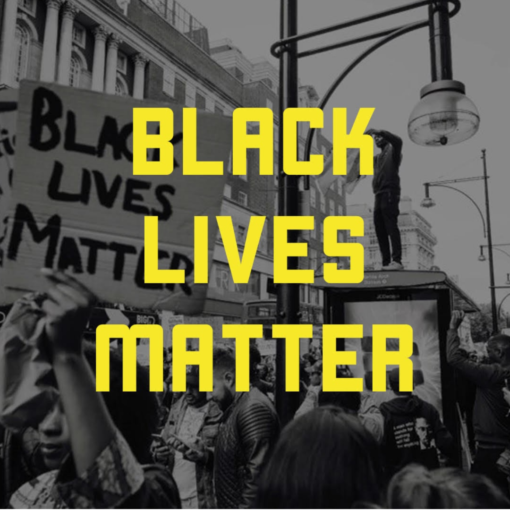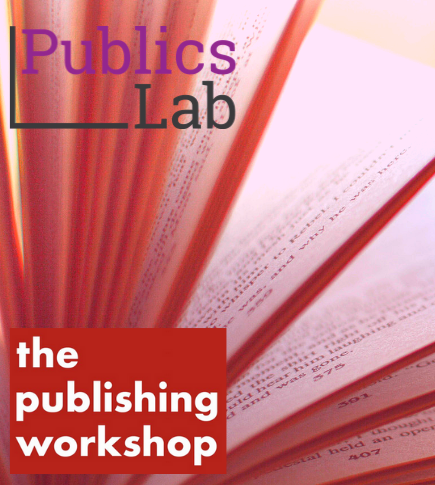
It was wonderful to attend this tripartite workshop series about how to start a mission-driven business or nonprofit led by Dr. Siovahn A. Walker. A trained humanist and nonprofit professional, Dr. Walker is an expert in managing and marketing mission-driven organizations, both nonprofit and for-profit. She is currently the Executive Director of the American Musicological Society as well as CEO and founder of Mayhunt Consulting, LLC., a New York State benefit corporation specializing in providing marketing and managing support for small businesses and nonprofits. She holds a BA in History from Brown University, an MA and PhD in History from Stanford University, and a Masters of Public Administration (MPA) from Columbia University. The events were moderated by Dr. Stacy Hartman, director of the PublicsLab.
Academia vs. Entrepreneurship
On the first day, “Imagine It: Envisioning and Planning Your Business or Nonprofit,” Dr. Walker spoke about the ways that graduate school prepares you for entrepreneurship and what factors we should consciously consider if we decide to pursue this path. Through the lens of her lived experience as both PhD and CEO, she encouraged us to reflect on internal and external factors that led us to pursue graduate school, zeroing in on qualities that graduate students and successful entrepreneurs may or may not share.
“Graduate school is often the easiest path for people who like learning and receiving external validation from school,” she said. “Sometimes people go to graduate school because they’re risk-averse. To be an entrepreneur, you need to have high levels of emotional regulation, higher than average risk tolerance, and an orientation toward creativity and problem solving—and you have to be prepared to be tested in ways that make you uncomfortable.”
She continued, “Since you’re in a PhD program, you’re already disciplined and persistent. But here are some ways to know for sure that you’re cut out for this: You’re oriented toward long-term goals. You’re generally successful at setting limits and boundaries for yourself. We all procrastinate and do crazy things, but you must have a way of setting guidelines. You have to break big goals into smaller ones.” We were cautioned that if we’re easily overwhelmed, entrepreneurship is likely not the right path. “You have to be very good at avoiding temptations, and I don’t mean chocolate or cake—when you start your business, you will have no clients, no customers, and no product,” she said. “It’s just like doing the dissertation—you have to get up every day, do you research, and write that monster, or else you’ll never get to the end of it. This is not going to be a quick payoff; it’s very much about what you can drive yourself to do.”
Dr. Walker felt hemmed in by academia. “I found it suffocating, regimented, and uncreative—I actually had to write my dissertation twice because the first draft was ‘too expansive.’ In the end, I submitted a sliver of the original document; this was an object lesson in why I didn’t need to be in that space.” She noted that someone who chooses an academic career isn’t necessarily hemmed in, but she felt that way. She loved to study history because she wanted to observe broad trends that connect human beings across time, so she designed a path more suited to her vision than professorship. However, her doctoral training in medieval ethics, philosophy, and history continually informs her journey as an entrepreneur. Her dissertation’s focus on medieval institutions, institutional reform, and the nature of the mind remains central to her career, serving to strengthen her entrepreneurial disposition and to help her decide what kinds of changes she wants to make in the world.
“As I wrote my dissertation, I was curious about this: if you had a certain vision of the human mind, what kind of institution would you build? This question became relevant later on. Even though I’m no longer a medievalist, I still care about this question,” she said. As a graduate student, Dr. Walker wanted to know what makes an organization function well. For example, are people better for having interacted with a particular institution? Institutions have a large scope for impacting the world around us, but they can be horribly dysfunctional. “They can deaden the soul and depress the spirit,” she said, “Or, they can do the opposite. They can improve communities and transform entire societies.” She reminded us that how you run an organization and treat the people within it is an ethical consideration, just as how you behave and treat people in your personal life is an ethical consideration.
The second and third workshops, “Launch It: Funding and Starting Your Business or Nonprofit,” and “Run It: Tools for Making it Through Your First Year” were focused less on motivation and more on the nuts and bolts of launching and operating a mission-driven business or nonprofit. Through her work at Mayhunt Consulting, LLC., Dr. Walker helps business owners deal with the challenging moments they face as they find their footing. She described technical issues that entrepreneurs encounter during their first six months to a year, and provided useful resources that can connect us to advice, mentoring, and funding, in addition to resources to help us through potentially daunting issues like taxes and getting registered (see below). We explored the day-to-day aspects of running a business and tools that make it easier; we also discussed the importance of marketing and branding, creating policies and contracts, targeting and cultivating customers, creating revenue models, and reflected on how each of these facets affects a business.
“Your ideas have merit and value.”
Dr. Walker encouraged us to recognize the value in our ideas, and to consider what truly motivates us and gives us a sense of purpose. As a doctoral student, she had an idea for a business called “Patrons,” which she envisioned as a crowd-sourced website that connects artists with their supporters. Calling upon her HTML skills, she started a pilot website and created a business plan. “Like all of you, I had a lot of qualifications and interests,” she said. “I knew a lot of stuff; I knew more languages than anyone really has a need for because of my graduate training. I’d taught History and English, and I had marketing experience. I eventually abandoned Patrons—why? As we all know, writing a dissertation takes a lot of energy, and I didn’t know how to get funding or who to partner with.” Years later, someone launched Patreon, a membership platform that provides business tools for creators to run subscription content services and receive monthly income. “Let me be an example to you,” she said. “If you have an exciting idea, go forward. Yours may or may not be the next Patreon, but your ideas have merit and value, and you should pursue them.”
Dr. Walker is a compelling example of someone whose academic training informs her pursuits outside of academia in a positive, expansive, and inspiring way. It was an honor to attend this workshop series, which reminded us of our possible futures and the ways our doctoral work can help us curate careers that suit us. We can think critically about how we relate to academic spaces, and examine whether or not the PhD’s call for hyperspecialization fully resonates with our visions of our postgraduate lives. Qualities that might not necessarily be emphasized during graduate studies, such as sustaining a wide range of interests and taking bold risks, are assets to entrepreneurs, so we might explore our expansive inclinations and remember that we can design our own paths. With Dr. Walker’s blessing, we can dedicate some of our time as doctoral students to creating an authentic relationship with our deepest, most exciting motivations and goals, and to imagine possibilities for ourselves that draw on our strengths and personalities. As Dr. Walker said, there are ample tools and resources that can help us forward. There are numerous ways to do good in this world, and professionals like Dr. Walker carry the torch, illuminating a unique path—in this case, the path of an entrepreneur.
—
Select Tools and Resources
Need advice or mentorship? Visit SCORE.
Need information on incorporating? Check out the IRS page for businesses.
Want to register as a nonprofit in NYS? Start with the state’s NFP FAQ.
Interested in a small business grant? Check out Fundera and the Small Business Administration.
 Madeleine Barnes is a poet, visual artist, and English PhD student. Her research focuses on women’s domestic embroidery and poetry as forms of public and private resistance in Early Modern England. A co-curator of the Lunar Walk Poetry Series, Poetry Editor at Cordella Magazine, and Publicity Assistant at Press Shop PR, Madeleine is dedicated to showcasing the work of underrepresented groups within and outside of academia, dissolving boundaries between art and scholarship. Her debut poetry collection was published by Trio House Press in July 2020, and she has taught creative writing and humanities research at Brooklyn College and NYU, where she earned an MFA in Creative Writing.
Madeleine Barnes is a poet, visual artist, and English PhD student. Her research focuses on women’s domestic embroidery and poetry as forms of public and private resistance in Early Modern England. A co-curator of the Lunar Walk Poetry Series, Poetry Editor at Cordella Magazine, and Publicity Assistant at Press Shop PR, Madeleine is dedicated to showcasing the work of underrepresented groups within and outside of academia, dissolving boundaries between art and scholarship. Her debut poetry collection was published by Trio House Press in July 2020, and she has taught creative writing and humanities research at Brooklyn College and NYU, where she earned an MFA in Creative Writing.







